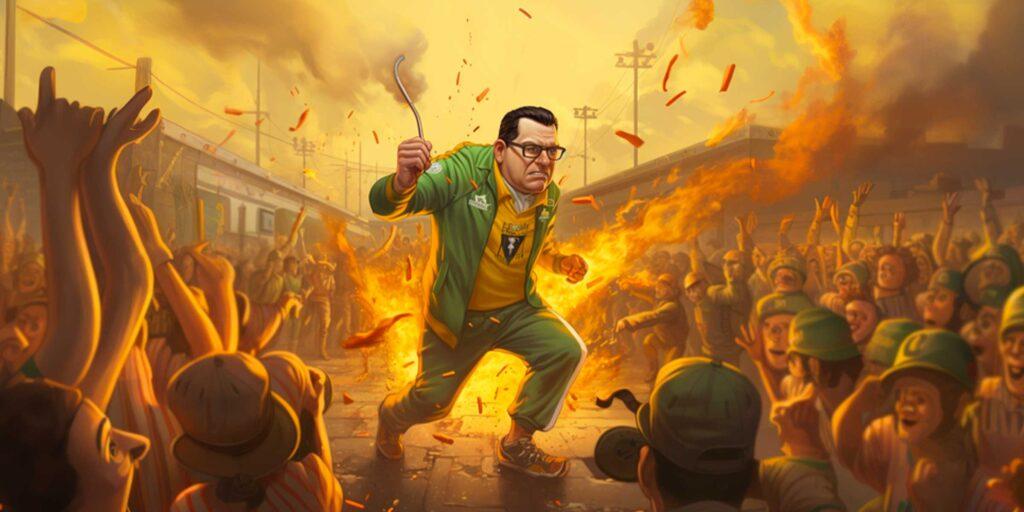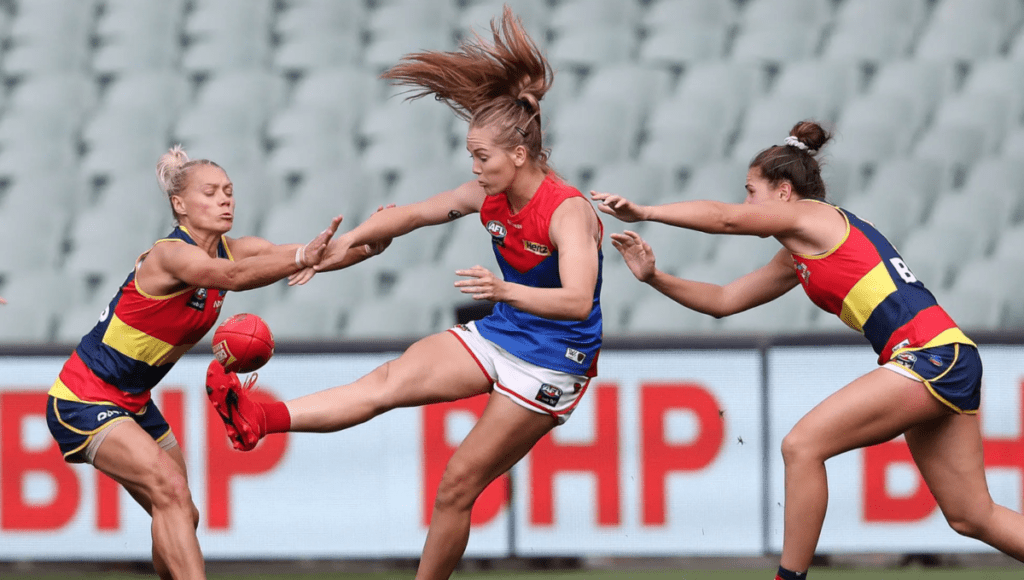Having commenced the 2022 AFL season it’s worth reflecting on 1990, the year the AFL came into existence. Thirty-two years seems like a long time ago but really, it isn’t.
In 1990, Bob Hawke was running the show. Australian music taste saw Sinead O’Connor’s Prince-penned lament ‘Nothing Compares to You’as the highest charting song of the year. Australian were tuned to Married with Children, The Wonder Years and Hey Hey, It’s Saturday. We didn’t know it at the time, but we were awaiting salvation from the sonic ructions of grunge and the iconoclastic Seinfeld. 1990 seems very distant as the calamities we currently face is as scary as anything we could have ever imagined.
For football in the late ’80s, the writing was on the wall for the VFL; they needed to adapt. The Swans had moved out of South Melbourne in the early ‘80s and headed north. The Eagles came in cashed-up in 1987. Decentralisation of the suburban competition was afoot yet some in football wanted a cheque-book approach. The AFL prevailed and took the lead as the previous decade’s axiom of ‘greed is good’ couldn’t be believed and the clubs couldn’t be trusted.
As the fledgling AFL season commenced, Sheeds was the Bombers coach, and you could sit at the ‘G sucking on cans and darts while being racist. But football, like our musical and TV tastes, was changing and it would be Indigenous players leading the way. By way of contrast, today we have streaming services, global warming, crypto, COVID, BLM and social media. For many they all seem to be markers of progress, but for some it speaks to our lack of it.
One thing the AFL has done over the course of the last two pandemic-ravaged years – mirroring the 1990 pivot – is adapt. With a fledgling AFLW competition just finding its feet in 2020, it was cut off at the knees as the finals were abandoned. A weaker code would have wilted, but AFL CEO Gillon McLachlan didn’t flinch. Innovation and adaptability became the AFL’s creed. It was sheer will. The net result is women’s competitions around the country have exploded.
Adaptation has enabled this year’s AFLW finals series to simply be pushed back due to COVID delays. The next AFLW season will commence in August of this year ushering in the full complement of sides. Two seasons ago even the bravest would have thought this unlikely, but the world has shifted. Exhibit A is Eddie McGuire, as the Pies President and AFL powerbroker was forced to resign after his handling of the leaked Do Better report presser will attest.
The pandemic has forced many issues relating to social justice to come to the fore. The death of George Floyd and the blowing up of Juukan Gorge sent shock waves into our collective consciousness. By the time McGuire addressed the media throng in early February 2021 – stating it was a ‘historic and proud’ day – the butterfly effect was more like a bulldozer with tetradactyl wings.
It seems anachronistic, but with all of this upheaval and strangeness going on in the world the thing we can be most certain of is uncertainty itself. It’s how we respond to it that will matter. This will determine the relationships we have with our family and friends, but perhaps more importantly with those strangers in our lives who inhabit the world we do.
Nowhere is this more tangible than going to the football where the shared experience of watching a game makes it more than just that. In many respects we understand this due to the efforts of Aboriginal and Torres Strait Islander players who have provided so much skill and excitement. This however has come from places of pain as the Nicky Winmar, Michael Long and Adam Goodes stories have become the touchstone for some hard lessons and hard national conversations. With the Dreamtime game coming back to the MCG we will be able to celebrate the resilience of First Nations Australians and the remaking of the code, week-in-and-out.
After two years heavily ravaged by the pandemic and now a somewhat seeming return to normality, the AFL needs to construct its vision the next 32 years to ensure it will remain as dynamic and intriguing as the last 32, both on and off the field.
There have been markable progressions to diversify and support inclusion such as the Pride and Indigenous rounds. But, as the recent scandals involving Tom Morris and Cyril Rioli/Jeff Kennett prove, there’s a very long way to go.
Is the issue of potential expansion into Tasmania and the Northern Territory to be part of the AFL football federation feasible or will it dilute the talent and funding pools even further? Will we see a return to the marquee international games to try and build a global fanbase that rivals the big four American leagues and attracts more players from around the world? Will we see acceptance of trans players in either league?
These are all big-ticket questions – but ones that AFL House must explore to secure the league’s continued evolution and growth over the coming decades.



